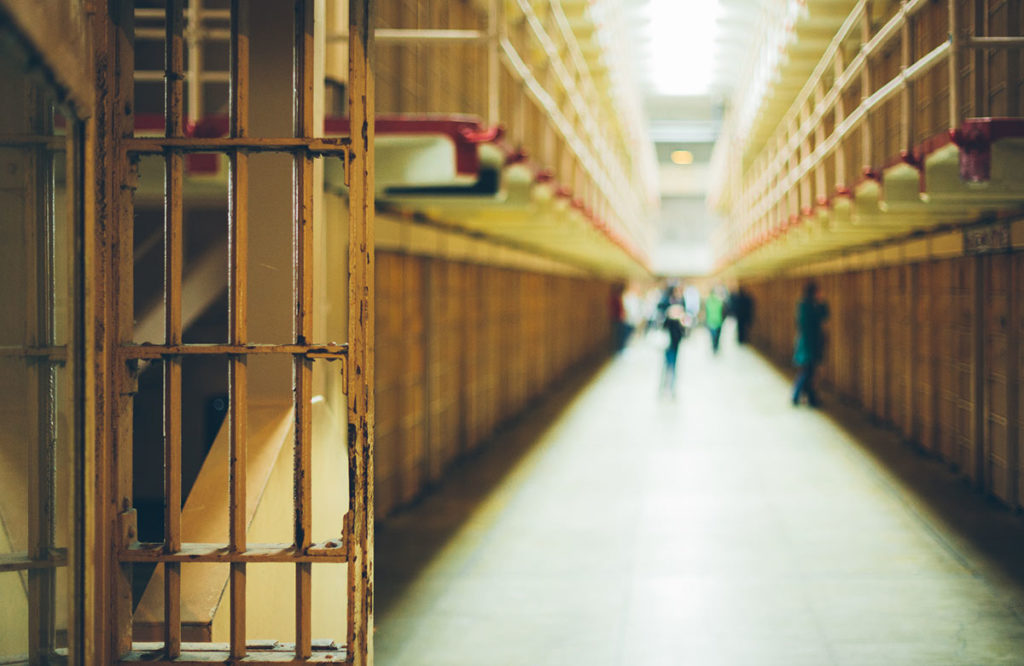Smoking Marijuana Is Bad for Your Health, but Spending Time in Jail Is Worse
From cheesy taglines insisting “This ain’t your grandfather’s marijuana” to hyperbolic headlines warning that “Cannabis Users Risk their Sanity,” we have been lectured for decades about the harms of marijuana use. There is no doubt that inhaling combustible smoke of any kind, including cannabis smoke, has adverse health effects. But what War on Drugs advertising campaigns have not told us is that while smoking may be bad for our health, being jailed — even for one night — could be worse.
Though arrest and prosecution rates for simple possession of marijuana have decreased, we still punish people for possessing and using weed. In fact, smoking a joint can still land one in “the joint,” often as a collateral consequence for being on probation or parole.
Let’s assume that a person is arrested for a marijuana-related offense. After that person is arrested, a bail hearing is set. During the hearing, the judge assigns bail and releases the individual. Ideally, this all takes place within 24 to 48 hours — although for many, that is not the case. This means that at a minimum, a person arrested for possessing or using marijuana is spending one or two nights in jail. And we know that for every one of these nights, there is a significant mental and physical cost.
When describing what happens to a person when he or she is arrested and taken into custody, Dr. Jaime Blandino explains that the body is “flooded with adrenaline and stress hormones, like cortisol, and chemicals that kick off a flight-or-fight response.” The more sophisticated part of the brain that engages in problem-solving starts shutting down which, as Dr. Blandino explains, “is part of the reason you see so many people in jail reverting to primitive kinds of behaviors and ways of relating.” The body continues acting under duress mode until a person can acclimate to their new surroundings, and because each individual exhibits stress differently, the length of time can vary.
In addition to mental health consequences of landing in jail, physical health problems abound in the incarcerated population. Highly contagious diseases like Hepatitis A, MRSA and and tuberculosis are prevalent in crowded jails. Scabies is also a common health hazard among those who are detained in these facilities. The Centers for Disease Control and Prevention reports that STDs, including HIV/AIDS, are more commonly present in incarcerated populations than within the general public. Even illnesses like Hepatitis C, which is now curable, are still ravaging those who are locked up because treatment is so costly. As if that weren’t enough, time incarcerated can also exacerbate chronic diseases like diabetes and heart disease. Just one night in jail puts those incarcerated at increased risk of catching these diseases or worsening existing ones.
And lots of people are spending at least one night in detention for marijuana-related offenses. Since 1995, there have been more than 15 million arrests involving marijuana in the United States, including an estimated 660,000 in 2017 alone — significantly more than those detained for all violent crimes combined. Not only is this number astonishingly high, but the disparate impact of marijuana arrests is also extreme. One study found that black Americans are almost four times more likely than white Americans to be arrested for marijuana despite similar use rates.
Just like tobacco smoke, inhaling cannabis smoke does expose the user to some level of select polycyclic aromatic hydrocarbons. Over time, repeated exposure to these chemicals could lead to cardiovascular disease or possibly cancer. But one team of researchers with the Beckley Foundation studied the health risk associated with using cannabis and found “the public health impact of contemporary patterns of cannabis use are modest by comparison with those of other illicit drugs — such as opioids — or with alcohol.”
Currently, 10 states have legalized marijuana for adults while 13 have decriminalized simple possession, which usually means violators are fined rather than arrested. Yet in the other half of the country, if a police officer smells that distinctive aroma and searches you, finding even a single joint in your pocket will subject you to all of the harms associated with spending a night in jail.
Aside from the potential health risks associated with violating marijuana prohibitions, it is clear that marijuana prohibition itself is leading to additional health-related ramifications. When any item that is in high demand is criminalized, illicit markets will provide the supply. The products sold on these markets can be especially harmful to a person’s health. Cannabis products specifically could be contaminated with damaging substances like pesticides, molds or bacteria. Simply put, the prohibition of cannabis leads to the proliferation of criminal markets that have zero quality-control standards. Products derived from these illicit markets can lead to further detrimental health effects for users.
As if the health threats related to marijuana prohibition weren’t enough, lawmakers in some municipalities are seeking outright bans on flavored tobacco products, including menthols. If cities like San Francisco continue to adopt bans on in-demand products, enforcement of such bans will lead not only to a new black market in potentially contaminated products, but to more people being incarcerated and thus exposed to the extremely negative health risks associated with spending time in jail.
Everyone understands that lighting up and inhaling hot smoke will negatively affect a person’s health. But the risks of spending a night in jail, as well as those associated with using products sold on a criminal market, are potentially worse.








